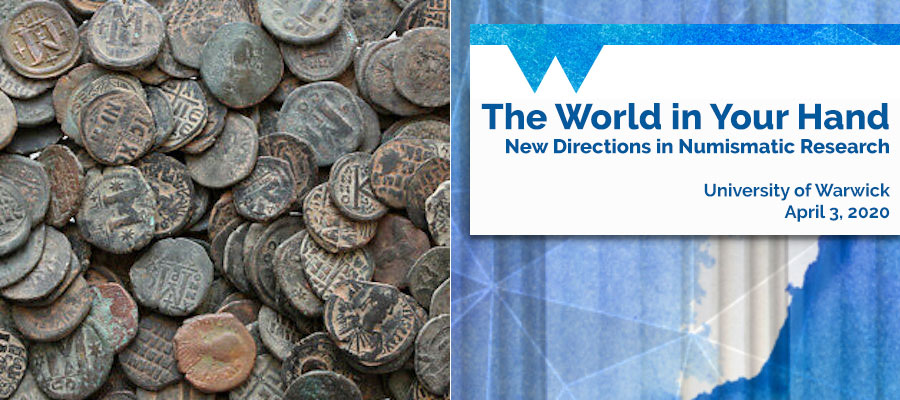The World in Your Hand. New Directions in Numismatic Research, University of Warwick, April 3, 2020
Coins, banknotes, tokens and other forms of money are often portable objects that can be held in the hand; indeed modern day medallic artists tell us that these objects are designed to be held in the hand. But although small and at times unassuming, these media carry and convey an extraordinary array of information; by holding a coin in your hand one might argue you are holding your world.
This conference explores what the unique contribution of numismatics is to our understanding of human society. Money, coinage, bank notes, tokens and medals across the ages have played political, cultural, religious, memorial, economic and social roles; often they provide a unique insight into particular communities, cultures and societies. A key focus of the conference will be exploring the intersection of numismatics, the study of money, with disciplines such as history, classics, art history, sociology, and economics. Papers on any topic related to the theme are welcome, but some key questions for the day include:
- What does numismatic imagery reveal about the exchange of cultural ideas and artistry between people?
- What does numismatic imagery reveal about the way societies negotiated their relationship with their ruling power?
- How does money contribute to identity and a sense of belonging?
- What do the location of coin finds reveal about the movement of people and their economic interactions?
- How do the particular forms of payment media reflect social hierarchies, and how do social relationships reshape money?
- How is money used beyond the economic sphere within belief systems and rituals?
- How does money act as a type of media, storing and conveying information, as well as mediating human relations?
We invite conference abstracts (20 minute papers) of no more than 250 words from early career scholars (PhD students, postdoctoral researchers, assistant professors, early career heritage sector employees, etc).
